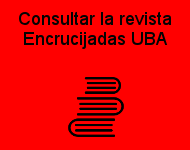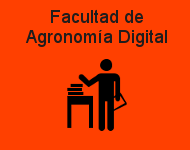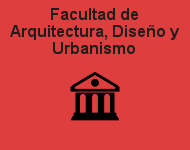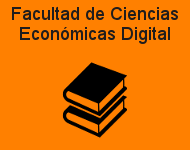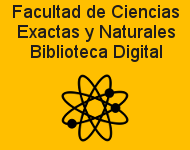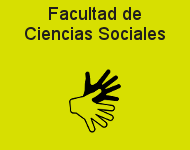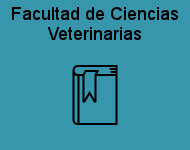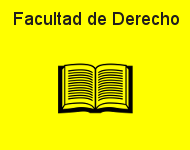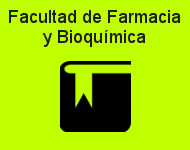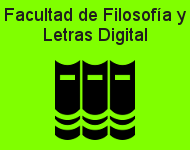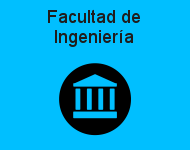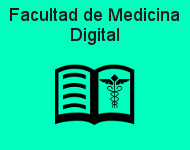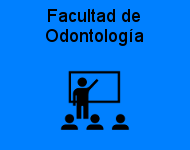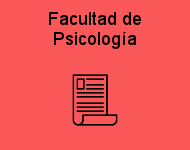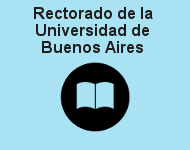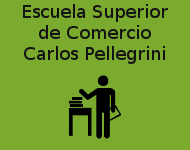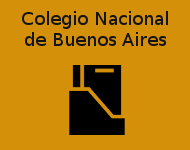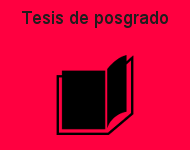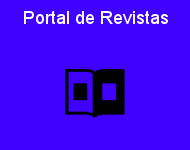"We are opening paths ..." Training experiences in intercultural education in theprovince of Neuquén
Trpin, Verónica - Gonzalez, Mariana
En: RUNA, archivo para las ciencias del hombre; Vol. 43 Núm. 1 (2022): Debates actuales en torno a la educación y la diversidad cultural en América Latina; 211-228
Temas: Interculturality; Neuquén; Mapuche Folk; Migration; Education - Interculturalidad; Neuquén; Pueblo Mapuche; Migrantes; Educación. - Interculturalidade; Neuquén; Povo mapuche; Migrantes; Educação
Contenido: La interculturalidad surge vinculada al campo educativo y a los procesos de escolarización de niños/as pertenecientes a Pueblos Originarios. Sin embargo, particularmente en la Argentina, lejos de agotarse en la escolarización de grupos étnicos, el campo de la educación interculturalse ha configurado como un espacio de disputa, de reflexión teórica y política y de generación de prácticas pedagógicas que ponen en cuestión la naturaleza homogeneizadora de los sistemas educativos tradicionales. Es así como la educación intercultural necesita ser pensada como un conjunto de estrategias pedagógicas situadas y atravesadas por procesos culturales, económicos, políticos y sociales y que involucran múltiples actores/as comprometidos/as. En este artículo, nos focalizaremos en el recorrido de experiencias en formación en interculturalidad coordinadas desde la articulación de organismos nacionales y organizaciones sociales en la provincia de Neuquén, las cuales expresan debates en torno a cómo posicionarnos sobre la educación intercultural y sus alcances en los territorios.
...ver más Tipo de documento: info:eu-repo/semantics/article | Formato: application/pdf
Editor: Instituto de Ciencias Antropológicas - FFyL-UBA
Fuente: Revistas Científicas de FILO
Rural neighborhoods and tourism: economic reconversion and social antagonisms mediated by cultural categories
Pinque, Germán
En: RUNA, archivo para las ciencias del hombre; Vol 44 No 2 (2023): Antropología de lo público; 253-265
Temas: economic reconversión; tourism; rural neighborhoods. - Reconversión económica; turismo; vecindarios rurales. - reconversão económica; turismo; bairros rurais
Contenido: El texto que se presenta a continuación es una adaptación de la tesis de maestría presentada en la Facultad de Filosofía y Humanidades (UNC) en el año 2008. La investigación, de carácter etnográfico, se desarrolló durante 2004 y 2005 y tuvo como objetivo describir y analizar los procesos de reconversión socioeconómicos y los antagonismos desencadenados por la llegada del turismo a un vecindario rural de las Sierras Grandes, Provincia de Córdoba. En este trabajo, el análisis se concentra en dos categorías claves para entender estos procesos y antagonismos, puesto y albergue: con estas palabras se hace referencia, desde la perspectiva de los actores, a las unidades socioeconómicas locales, pero, en otros niveles que trataré de reconstruir, constituyen y funcionan como símbolos que reflejan, tematizan y comunican racionalidades económicas y distinciones sociales y políticas fundamentales a la vez que articulan una relación nosotros/ellos estructurante de las relaciones, las prácticas y las representaciones locales.
...ver más Tipo de documento: info:eu-repo/semantics/article | Formato: application/pdf
Editor: Instituto de Ciencias Antropológicas - FFyL-UBA
Fuente: Revistas Científicas de FILO
Violencias, seguridad y dilemas metodológicos
Plaza Schaefer, Valeria - Cabrera, Nicolas
En: RUNA, archivo para las ciencias del hombre; Vol. 42 Núm. 1 (2021): Cuestiones, dilemas y desafíos metodológicos en investigaciones sobre seguridad pública, violencia(s) y activismos; 83-102
Temas: Security - Violence - Football - Preventive policies - Police - Seguridad - Violencia - Fútbol - Políticas preventivas - Policía - Segurança - Violência - Futebol - Políticas preventivas - Policía
Contenido: In this paper we propose to analice from a sociological point of view a research and an intervention process aimed at diagnosing, quantifying, interpreting, training and raising awareness about violence in soccer in the community of Club Atlético Belgrano de Córdoba. This is an experience that derived in the project "Programa integral contra la violencia: para que Alberdi siempre sea una fiesta" born from the agreement signed between the Faculty of Social Sciences of the UNC, the College of Psychologists of Córdoba and the club in question. Two objectives underlie the proposal of our text: on the one hand, to problematize the dilemmas and methodological challenges that have arisen in the production of data linked to sports security in football contexts; and, on the other hand, to discuss the hegemonic model of security that prevails in Argentine stadiums while narrating an alternative and specific project of security management both among the club's community and in articulation with central external actors such as the police.
...ver más Tipo de documento: info:eu-repo/semantics/article | Formato: application/pdf
Editor: Instituto de Ciencias Antropológicas - FFyL-UBA
Fuente: Revistas Científicas de FILO
Becoming state
Maia, Bóris
En: RUNA, archivo para las ciencias del hombre; Vol. 41 Núm. 2 (2020): Dossier: Debates acerca de la Antropología del Estado y las Políticas Públicas en contextos latinoamericanos contemporáneos
Temas: Civil service - Competitive entrance examination - State bureaucracy - Bureaucratic elite - Bureaucratic subjection - Administración pública - Concurso público - Burocracia estatal - Elite burocrática - Sujeción burocrática - Administração pública - Concurso público - Burocracia estatal - Elite burocrática - Sujeição burocrática
Contenido: Este artigo toma por objeto o processo de formação de agentes estatais no Brasil, a partir do aprendizado adquirido durante a preparação para concursos públicos da burocracia fiscal. Pretende-se mostrar como, durante a frequência aos cursos preparatórios para cargos de uma elite burocrática, os candidatos são submetidos a um processo de subjetivação da autoridade do estado, aqui denominado de sujeição burocrática, que os torna afeitos a certas concepções culturais de serviço público que orientam práticas burocráticas tradicionais na administração pública brasileira. A metodologia de pesquisa se baseou na observação participante em dois cursos preparatórios sediados no Estado do Rio de Janeiro, efetuada entre outubro de 2015 e dezembro de 2017, além de entrevistas com professores e sócios de cursos preparatórios, e da interação com os interlocutores através de ambientes online.
...ver más Tipo de documento: info:eu-repo/semantics/article | Formato: application/pdf
Editor: Instituto de Ciencias Antropológicas - FFyL-UBA
Fuente: Revistas Científicas de FILO
Widows and witches. Rethinking the “suttee” in Santiago Avendaño’s chronicles from feminist perspectives
Hernández, Graciela
En: RUNA, archivo para las ciencias del hombre; Vol. 32 Núm. 2 (2011); 111-126
Temas: Widows - Witches - Violence - Feminism - Rankülches - Viudas - Brujas - Violencia - Feminismo - Rankülches - Viúvas - bruxas - Feminismo - Violência - Rankulche
Contenido: En la denominada “Crónica de Santiago Avendaño”, se describe el asesinato de treinta y dos mujeres en el marco de las exequias de Painé, principal autoridad, cacique o lonko de los rankülche de Leubucó, a mediados del siglo XIX, en la actual provincia de La Pampa (Argentina).Para realizar este análisis partimos de los aportes teóricos de la antropóloga Rita Segato sobre las relaciones entre crímenes de mujeres y disputas por el poder, y del texto de Gayatri Spivak “¿Puede hablar el subalterno?”, que incluye un análisis del suttee desde la teoría de la subalternidad.Hasta el momento se ha sostenido que la crónica identifica dos motivos para matar a las mujeres: por viudas y por brujas. Pretendemos analizar, a partir de esta fuente y de otras del siglo XIX (principalmente de Luis De la Cruz y Lucio Mansilla), cómo se construyeron las categorías de viudas y brujas. También queremos hacer visible la participación de los refugiados “blancos” en el ritual que estamos analizando.
...ver más Tipo de documento: info:eu-repo/semantics/article | Formato: application/pdf
Editor: Instituto de Ciencias Antropológicas - FFyL-UBA
Fuente: Revistas Científicas de FILO
Un periplo por la historia de los pueblos indígenas de las fronteras coloniales
Nacuzzi, Lidia R. - Lucaioli, Carina P.
En: RUNA, archivo para las ciencias del hombre; Vol. 43 Núm. 3 (2022): Número Especial 70 Aniversario; 571-579
Temas: Historical Anthropology - Ethnic groups - Archives - Identities - Pampa and Patagonia - Antropología Histórica - Grupos étnicos - Archivos - Identidades - Pampa y Patagonia - Antropologia Histórica - Grupos étnics - Arquivos - Identidades - Pampa e Patagônia
Contenido: Lidia R. Nacuzzi is a prominent scholar in the field of Historical Anthropology, acknowledged for her valuable contributions to the study of the interethnic processes between indigenous groups considered insumisos and state officials in the Pampa and northern Patagonia frontiers during the colonial period. In this interview, she reflects upon the different facets of her academic work: the first approaches to a novel research topic and methodology; her academic consolidation in the Ethnohistory Division of the Institute of Anthropological Sciences of the School of Philosophy and Literatures (Universidad de Buenos Aires) and her current situation as a scholar and trainer of human resources. Thus, the interviewer Carina Lucaioli takes us on a journey through the main theoretical, thematic and methodological concerns to which her interviewee has devoted herself during most of her academic trajectory, entwining this voyage with references to the historical, political and institutional contexts that framed and guided her academic development.
...ver más Tipo de documento: info:eu-repo/semantics/article | Formato: application/pdf
Editor: Instituto de Ciencias Antropológicas - FFyL-UBA
Fuente: Revistas Científicas de FILO
“Somos todos una gran familia”: comunidades político-emocionales y denuncias públicas por el territorio
Manzanelli, Macarena Del Pilar
En: RUNA, archivo para las ciencias del hombre; Vol 44 No 2 (2023): Antropología de lo público; 173-190
Temas: Private area - Public - State - Political violence - Original People - Ámbito privado - Público - Estado - Violencia política - Pueblos originarios - Espaço privado - Estado - Público - Violência política - Povos nativos
Contenido: The work investigates the framework of the public and the intimate-private by analyzing roles and family-community ties of two Diaguita towns (northwestern Argentina) and their public actions to denounce in judicial instances in the framework of a murder (2018-2019). ; lack of final judgment by the Judiciary (2019); and an eviction attempt (2020-2021). Product of an ethnographic investigation with analysis of publications in social networks, it is identified that the public is an ambiguous arena with overlaps between intimate-family and community ties. Each town, through the formation of political-affective communities, resignified a mere death as the political death of a family member/community authority; and to an eviction as a systematic action inserted in historical frameworks of indigenous subalternization. These communities are spatially-temporally territorialized by a memory of resistance. Its political potential was to show and question the other family: the political-judicial-landlord power that violates and violates their rights.
...ver más Tipo de documento: info:eu-repo/semantics/article | Formato: application/pdf
Editor: Instituto de Ciencias Antropológicas - FFyL-UBA
Fuente: Revistas Científicas de FILO
“No estamos solos”
Aguirre, Sabrina
En: RUNA, archivo para las ciencias del hombre; Vol. 42 Núm. 2 (2021); 261-282
Temas: Interculturality - Territory - Indigenous Communities - Indigenous People - Mapuche People - Interculturalidad; - Territorio - Comunidades Indígenas - Pueblos Indígenas - Pueblo Mapuche - Interculturalidade - Território - Comunidades Indígenas - Povos Indígenas - Povo Mapuche
Contenido: At the beginning of the 21st century, the community of Paicil Antriao began its reconstruction, which had been interrupted since the territorial stage. In a context that implied a new menace to their territoriality, a degree of preexisting mapuce organization allowed this lof to gain perspective. Intercultural articulation became a tactic for territorial consolidation. Based on our fieldwork, bibliography and documents produced by international and national organisms and the Mapuce organizations, this paper analyses how the reconstruction of the community implied building bonds to the Argentinian people. During the two decades of the 21st century, the intercultural articulation broadened, with a turning point in 2011, when the Mapuce Confederation, a third grade organization that existed since 1970, reinforced its presence in the community.
...ver más Tipo de documento: info:eu-repo/semantics/article | Formato: application/pdf
Editor: Instituto de Ciencias Antropológicas - FFyL-UBA
Fuente: Revistas Científicas de FILO
Tejiendo saberes. Patrimonio intangible, identidad y valoración social: el caso de Ercilia Cestac
Pedrotta, Victoria - Tancredi, Mariela - Mariano, Mercedes - Endere, María Luz
En: RUNA, archivo para las ciencias del hombre; Vol. 34 Núm. 1 (2013); 91-112
Temas: Intangible Heritage - Textile Art - Indigenous Heritage - Social Valuation - Regional History - Patrimonio Intangible - Tejeduría - Herencia Indígena - Valoración Social - Historia Regional - Patrimônio Intangível - Arte Têxtil - Herança Indígena - Valorização Social - História Regional
Contenido: New theoretical perspectives concerning cultural heritage have broadened its scope and have led to value intangible heritage as a source of diversity, identity and creativity as well as a way to recognize the practices and knowledge of individuals and groups involved. In this context, the article presents the case of Ercilia Moreira de Cestac, a recently deceased descendant of Manuel Grande´s indigenous tribe. She devoted her life to preserve and reproduce ancestral knowledge and techniques concerning textile art. For this reason she was declared “living heritage person” of the city of Azul and “living cultural heritage” of the province of Buenos Aires. This paper aims to analyze and discuss the challenges that the “unique” character of her testimony presents to regional intangible heritage, as well as the complexity and richness of the social valuation processes involved.
...ver más Tipo de documento: info:eu-repo/semantics/article | Formato: application/pdf
Editor: Instituto de Ciencias Antropológicas - FFyL-UBA
Fuente: Revistas Científicas de FILO
“No queremos ser pesca acompañante, sino pesca objetivo”
Álvarez Burgos, María Catalina
En: RUNA, archivo para las ciencias del hombre; Vol. 41 Núm. 2 (2020): Dossier: Debates acerca de la Antropología del Estado y las Políticas Públicas en contextos latinoamericanos contemporáneos
Temas: Women's network - Gender institutionality - Artisanal fishing - Political arena - Socio-state interfaces - Red de mujeres - Institucionalidad de género - Pesca artesanal - Arenas políticas - Interfaces socioestatales - Rede de mulheres - Institucionalidade de gênero - Pesca artesanal - Areias políticas - Interfaces sócio-estatais
Contenido: In Chile, artisanal fishing has been defined and regulated as an extractive subsector, lacking socio-cultural elements. As a result of this, gender and women have been excluded under the supposed universality and neutrality of their regulation, which today is questioned by territorial organizations that, organized in a network, demand an economic and symbolic recognition of their work. The objective of this article is to analyze the political arenas between the State and organizations of fisher women, problematizing the current gender institutionality in this productive subsector, through the ethnographic observation of socio-state interfaces, the application of semi-structured interviews to actors key, and triangulation with secondary sources. The results show a growing process of political empowerment of women's organizations, which, through common learning spaces, pressure the State in the search for democratic instances of participation.
...ver más Tipo de documento: info:eu-repo/semantics/article | Formato: application/pdf
Editor: Instituto de Ciencias Antropológicas - FFyL-UBA
Fuente: Revistas Científicas de FILO
Lo que no mata, fortalece
Liberatori, Marina
En: RUNA, archivo para las ciencias del hombre; Vol 44 No 1 (2023); 5-20
Temas: Prison - Women - Violence - Gender - Social trajectoriess - Cárcel - Mujeres - Violencias - Género - Trayectorias socialese - Cadeia - Mulheres - Violência - Gênero - Trajetórias sociais
Contenido: This paper proposes to analyze the porousness of the prison as a punishment institution, but at the same time as an experience that make possible to learn how to reverse the violence suffered by three women, –with whom I have been related between 2009 and 2021 during field work for doctoral and post-doctoral researches–, throughout their lives before the prison. Likewise, it focuses on the reflection about how gender crosses the life trajectories and experiences of prison of these three women and how it supposes a double stigmatization. On the one hand, the negative social figuration of prison population and more specifically because to be a woman also puts in tension social, cultural and moral assumptions about the society expects of them.
...ver más Tipo de documento: info:eu-repo/semantics/article | Formato: application/pdf
Editor: Instituto de Ciencias Antropológicas - FFyL-UBA
Fuente: Revistas Científicas de FILO
“¿Quién fue el verdadero salvaje en todo esto?”: las dimensiones morales en torno a la restitución de restos humanos indígenas
Stella, Valentina
En: RUNA, archivo para las ciencias del hombre; Vol. 37 Núm. 2 (2016); 61-78
Temas: Restitution - Mapuche-Tehuelche - Moral Economies - Hegemony - Agency - Restitución - Mapuche-tehuelche - Economías morales - Hegemonía - Agencia. - Restituição - Mapuche-Tehuelche - Economias morais - Agência - Hegemonia.
Contenido: This article analyzes the moral dimensions that circulated around the case of the restitution of human remains of longko (chief) Inacayal and his family, who - after concluded the military campaigns in Patagonia - were taken prisoner and locked in the Museum of La Plata, becoming "objects of scientific study". The work intends to investigate the way in which certain indigenous agencies are considered legitimate and ethical for the hegemonic discourse, and others do not. Within this framework, when certain claims or practices overstep the "tolerable" hegemonically floors, the actions become incorrect, "exaggerated" and annoying for those who, on behalf of the defense of rights and claims of the native peoples - try to "work-around" to certain situations of inequality and injustice.
...ver más Tipo de documento: info:eu-repo/semantics/article | Formato: application/pdf
Editor: Instituto de Ciencias Antropológicas - FFyL-UBA
Fuente: Revistas Científicas de FILO
¿Por qué ya no recolectan los recolectores? Procesos de estigmatización del consumo de plantas silvestres entre los indígenas chorote del Chaco salteño
Scarpa, Gustavo Fabián - Pacor, Paola
En: RUNA, archivo para las ciencias del hombre; Vol. 38 Núm. 1 (2017); 5-21
Temas: Argentinian Chaco - Chorote indians - Stigma - Feeding - Ethnobotany - Chaco argentino - Pueblo chorote - Estigma - Alimentación - Etnobotánica - Chaco argentino - Povo chorote - Estigma - Alimentação - Etnobotânica
Contenido: The article analyzes cultural change related to the consumption of wild edible plants among Chorote Indians from Argentine Chaco, especially the process of construction of prejudices regarding such practices, expressed in the form of symbols of social or religious discredit which has led to their concomitant stigmatization and contempt. The influence of hegemonic agents in the conceptualization of wild edible plants and their utilization practices is here identified and analyzed from observational, exegetical and interpretative points of view. The article specifically discusses if the abandonment of wild edible plant consumption is due to reasons linked to environmental determinism, to the mere acquisition of new cultural practices, or to socio-religious stigmatization of old food rules among Chorote Indians from Argentine Chaco.
...ver más Tipo de documento: info:eu-repo/semantics/article | Formato: application/pdf
Editor: Instituto de Ciencias Antropológicas - FFyL-UBA
Fuente: Revistas Científicas de FILO
Viudas y Huérfanos: Mortalidad diferencial en el sector central de la Puna de Jujuy a fines del siglo XVIII.
Peña Aguilera, Daniela - Alfaro Gómez , Emma
En: RUNA, archivo para las ciencias del hombre; Vol. 43 Núm. 2 (2022): Dossier: Antropología Biológica; 229-244
Temas: Casabindo; Cochinoca; Mortality; Population dynamics; 18th Century - Casabindo; Cochinoca; Mortalidad; Dinámica poblacional; Siglo XVIII - Casabindo; Cochinoca; Mortalidade; Dinâmica populacional; Século XVIII
Contenido: Abstract
Based on two population registers of the late eighteenth century for Casabindo and Cochinoca, Puna de Jujuy, a detailed analysis of the family groups settled in each of them is carried out. Individuals and kinship groups from the 1778/79 Viceroyalty Census and the 1786 tributary census are taken into account. The results obtained reveal a large and stable population, reflected in an important percentage of individuals present in both registers and in a significant number of births. In contrast, the latter document shows a significant increase in widows, orphans, dependents and the absence of individuals corresponding to specific age groups. This situation could be hypothetically linked to the incidence of a plague, epidemic or other adverse circumstances that occurred during the period, causing a differential mortality pattern for which there is no documentary evidence.
...ver más Tipo de documento: info:eu-repo/semantics/article | Formato: application/pdf
Editor: Instituto de Ciencias Antropológicas - FFyL-UBA
Fuente: Revistas Científicas de FILO
La obra de Francisco Raúl Carnese y su aporte a la Antropología Biológica argentina
Avena, Sergio
En: RUNA, archivo para las ciencias del hombre; Vol. 43 Núm. 3 (2022): Número Especial 70 Aniversario; 465-476
Temas: Francisco Raúl Carnese - Biological Anthropology - Argentina - Population Genetics - Miscegenation - Francisco Raúl Carnese - Antropología Biológica - Argentina - Genética de Poblaciones - Mestizaje - Francisco Raúl Carnese - Antropologia Biológica - Argentina - Genética de Populações - Mestiçagem
Contenido: Francisco Raúl Carnese has been a central figure in Argentine and Latin American Biological Anthropology. His contributions to the discipline are discussed, based on events of interest that have marked his career, both for his teaching and research activities. His activity was developed first in the School of Natural Sciences and Museum of the Universidad Nacional de La Plata and then in the School of Philosophy and Literatures of the Universidad de Buenos Aires, serving as dean in both institutions. He has been a pioneer in the aplication of population genetics in Argentine Anthropology, both in past and present populations, and in native and cosmopolitan peoples. The main objectives of his activity have been to question racial classifications and the myth of European Argentina, which aims to invisibilize not only the native american and Afro-descendant population, but also the very existence of admixture in our country.
...ver más Tipo de documento: info:eu-repo/semantics/article | Formato: application/pdf
Editor: Instituto de Ciencias Antropológicas - FFyL-UBA
Fuente: Revistas Científicas de FILO
Bilder, Paula - Dominguez, Eugenia - Goldberg, Carola - Herkovits, Demián - Ludueña, Gustavo - Monkievicius, Paola
En: RUNA, archivo para las ciencias del hombre; Vol. 24 Núm. 1 (2003); 297-300
Tipo de documento: info:eu-repo/semantics/article | Formato: application/pdf
Editor: Instituto de Ciencias Antropológicas - FFyL-UBA
Fuente: Revistas Científicas de FILO
Jóvenes qom en el Gran Buenos Aires
Beiras del Carril, Victoria
En: RUNA, archivo para las ciencias del hombre; Vol. 43 Núm. 1 (2022): Debates actuales en torno a la educación y la diversidad cultural en América Latina; 113-133
Temas: Youth; Qom language; Linguistic repertoire; Social media; Rap - Juventudes; Lengua qom; Repertorio lingüístico; Espacios virtuales; Rap - Juventude; Língua qom; Repertório linguístico; Espaços virtuais; Rap
Contenido: In this work we observe the use, diffusion and senses built on the Qom language and the written word through the social media of a “rap originario” band of young Qom from Greater Buenos Aires. We are interested in analyzing how their linguistic repertoire is put into play and how this use contributes to the visibility of the indigenous language and challenges the pre-eminence of the monolingual and the hegemonic official languages. Likewise, we explore this speech performed for greater audiences considering how young people take ownership of global trends and link them with local ones in innovative ways.
...ver más Tipo de documento: info:eu-repo/semantics/article | Formato: application/pdf
Editor: Instituto de Ciencias Antropológicas - FFyL-UBA
Fuente: Revistas Científicas de FILO
Jóvenes y policías
Serrano Santos, María Laura
En: RUNA, archivo para las ciencias del hombre; Vol. 42 Núm. 1 (2021): Cuestiones, dilemas y desafíos metodológicos en investigaciones sobre seguridad pública, violencia(s) y activismos; 159-174
Temas: youth - police - urban places - poverty - urban violence - jóvenes - policías - pobreza - violencia urbana - enclave urbano - jovens - polícia - enclave urbano - pobreza - violencia urbana
Contenido: This article is part of a doctoral research in which I focused my interest in investigating the socialization processes of young people living in urban places of poverty and violence, having as one of the main axes, the relationships that are woven between the young people who live in these contexts with the police. The vicissitudes of fieldwork led me to reflect on the challenges and emotional management involved in anthropological work. In this article I present the reflections derived from the ethnographic experience with the police and young people, exposing some of the main findings in the investigation of the relationships that are woven between both actors and the implications of the police as a territorial agent of the State in the configuration of youth subjectivities in contexts of urban poverty and violence
...ver más Tipo de documento: info:eu-repo/semantics/article | Formato: application/pdf
Editor: Instituto de Ciencias Antropológicas - FFyL-UBA
Fuente: Revistas Científicas de FILO


